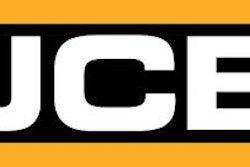
Dubbed the MAP-21 Reauthorization Act, the six-year bill would reauthorize surface transportation projects through fiscal year 2020 and is indexed for inflation.
Highlights outlined in the bill’s summary include:
- Six years of fully-funded highway programs
- Greater transparency of Highway Trust Fund (HTF) use
- Increased support for existing core formula programs
- Targeted funds for projects of national or regional significance
- Fully-funded freight and goods movement program
- Improved Transportation Infrastructure Finance and Innovation Act (TIFIA) program
- Expanded flexibility for state and local governments
- Authorization of awards program for state and local governments
- Acceleration of project delivery
- Funding for tribal and federal lands
- Continued state and metropolitan planning
Under the bill’s provisions, the core highway program would get a nearly $4 billion boost, from $38.44 billion in 2015 to $42.59 billion in 2020, and the TIFIA program would get $1 billion annually for six years. The bill also calls for the establishment of a national freight network, which would get $400 million in 2016, with that amount rising to $2 billion by 2020.
The bill would only reauthorize transportation spending. The Senate Finance Committee will have to find a way to fund projects authorized under the bill. Politico reports that Chairman Ron Wyden is considering a short-term patch if the committee can’t find a way to fund the full bill.
Transportation Secretary Anthony Foxx said on Monday that the bill is not large enough, The Hill reports.
“I just spent the better part of a week going to eight states, 12 cities large and small,” Foxx said, referring to his April bus tour. “And I have to tell you that America has been waiting on a bigger solution.”
Last month, Foxx presented President Barack Obama’s $302 billion, four-year reauthorization proposal — now known as the GROW AMERICA Act — to Congress. The Hill notes that the administration’s proposal would authorize about $25 billion more annually than the Senate EPW’s.
Shortly after the committee released the bill text on Monday, Sen. Tom Carper (D-Del.), chairman of the EPW Subcommittee on Transportation and Infrastructure, said the bill “really touches every American from city centers to rural highways.”
He noted the $2 billion per year the bill authorizes for freight flow on key corridors, adding that the program “supports economic growth.”
“These high-value projects will be targeted at improving the affordability, reliability, and efficiency of freight movement, reducing costs for businesses to help them to grow and better compete,” Carper said in a written statement. “The program will enable states to develop multi-modal freight investment plans that will ensure each state is investing in projects that support the biggest benefit to commerce and business, and provide taxpayers with a strong return on investment.”
Carper also pointed to the Projects of National and Regional Significance program and provisions that require states to use funds to clean up diesel pollution, noting that he is “excited about new, dedicated funding” for these specific areas.
On Tuesday, American Association of State Highway and Transportation Officials (AASHTO)Executive Director Bud Wright said the association commends the committee for releasing a multi-year bill.
“The nature of the projects and programs that state departments of transportation oversee require a long-term view in order to ensure the best investment of federal, state and local tax dollars,” Wright said in a written statement.
Wright noted that the HTF is projected to shortfall this summer, at least a month before the current highway bill, MAP-21, expires on September 30.
“While we begin the process of reviewing the specifics of the bill, we look forward to working with Sens. Boxer and Vitter and the rest of the Committee to address the looming Highway Trust Fund crisis,” Wright said. “Current projections show the Trust Fund could reach levels that slow and halt reimbursements to state DOTs within a matter of weeks.”
“We also look forward to working with the Committee and the entire Congress to preserve the successful MAP-21 framework that enables comprehensive, integrated transportation planning and programming across communities and rural areas in every state,” Wright added.
Patrick D. Jones, executive director and CEO of the International Bridge, Tunnel and Turnpike Association (IBTTA), also said on Tuesday that he commends the committee for releasing the bill.
“We recognize the challenge of developing a bipartisan transportation bill that balances infrastructure investment needs with the task of raising needed revenues,” Jones said in a written statement.
Jones noted that he appreciates the committee’s efforts to implement a program to seek alternative revenue sources.
“We are pleased that the bill would direct the Secretary to carry out a research program ‘to explore alternative transportation revenue mechanisms that preserve a user fee structure to maintain the long-term solvency of the Highway Trust Fund,’” Jones said. “We will continue to evaluate all provisions in the bill in the coming days. We look forward to working with both Houses of Congress to forge a long-term transportation bill that promotes safety and productivity on the highways and provides a sustainable, predictable and long-term source of funding that is vital to state transportation programs.”
To read the full text of the bill, click here. The bill is slated for markup Thursday at 9:30 a.m. Eastern Time.
Editor’s Note: Amanda Bayhi is the online editor for sister sites Better Roads and Aggregates Manager.












